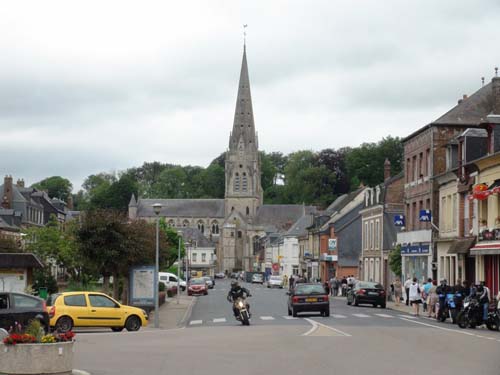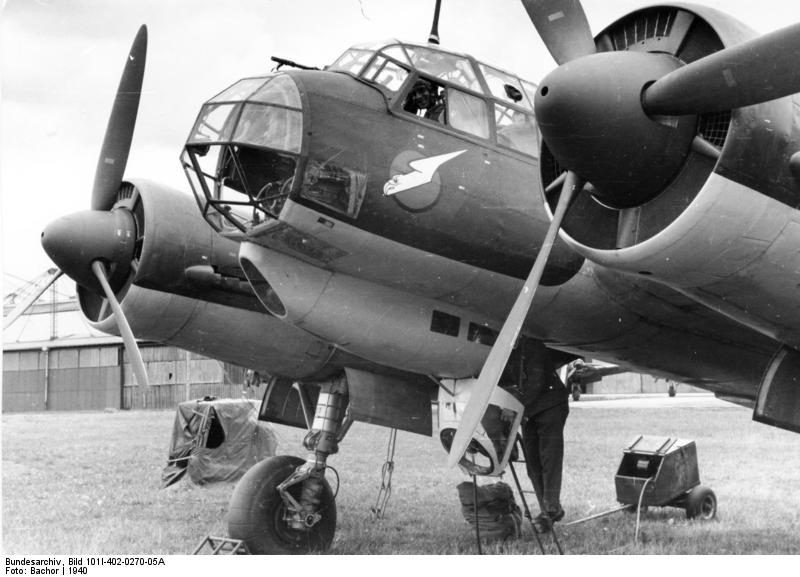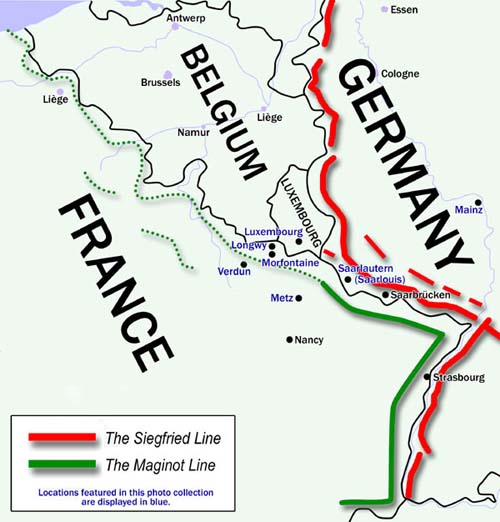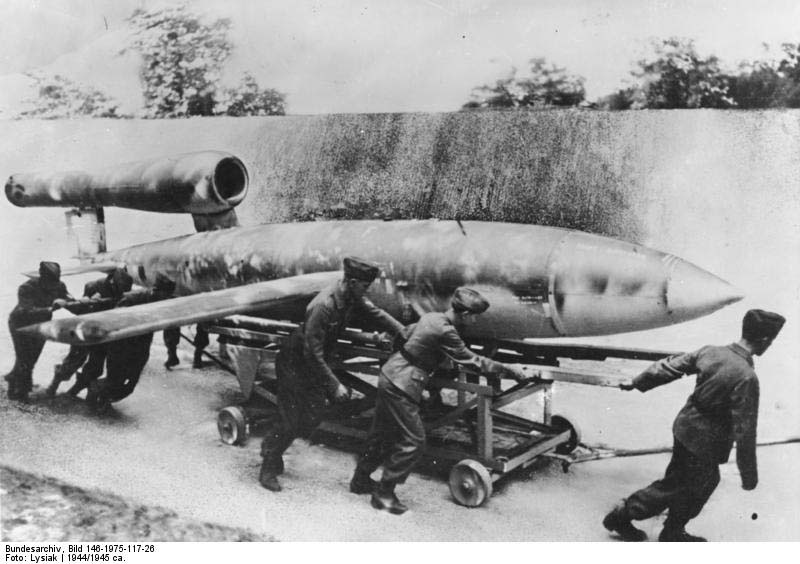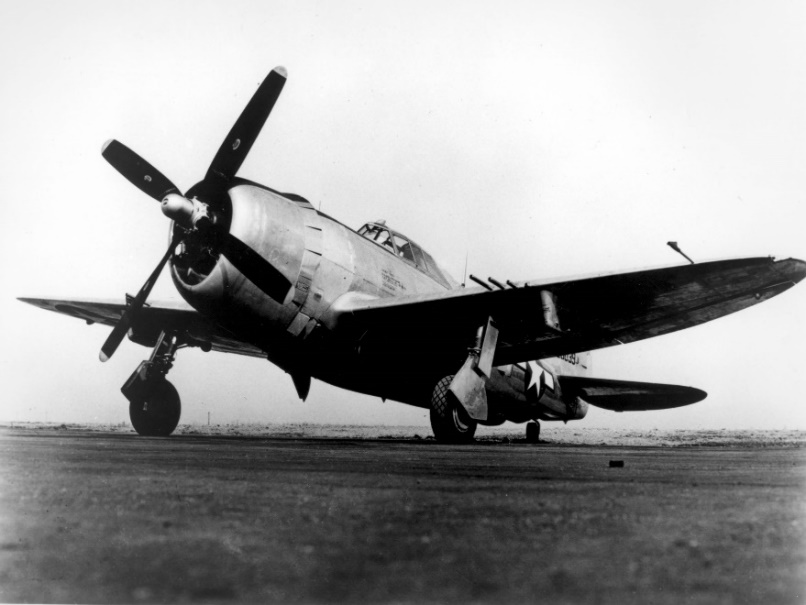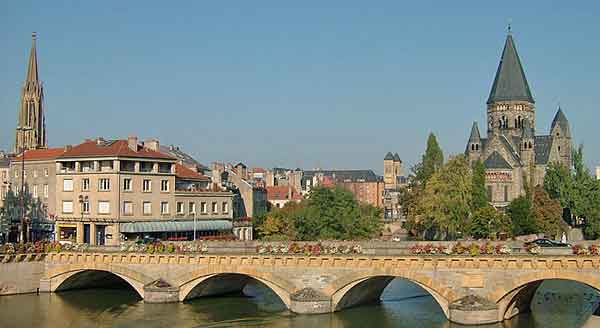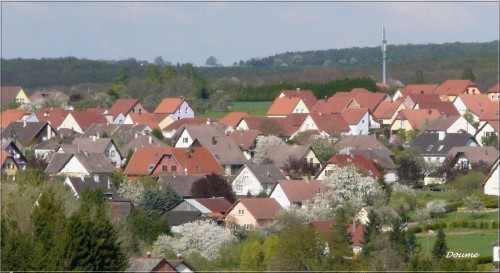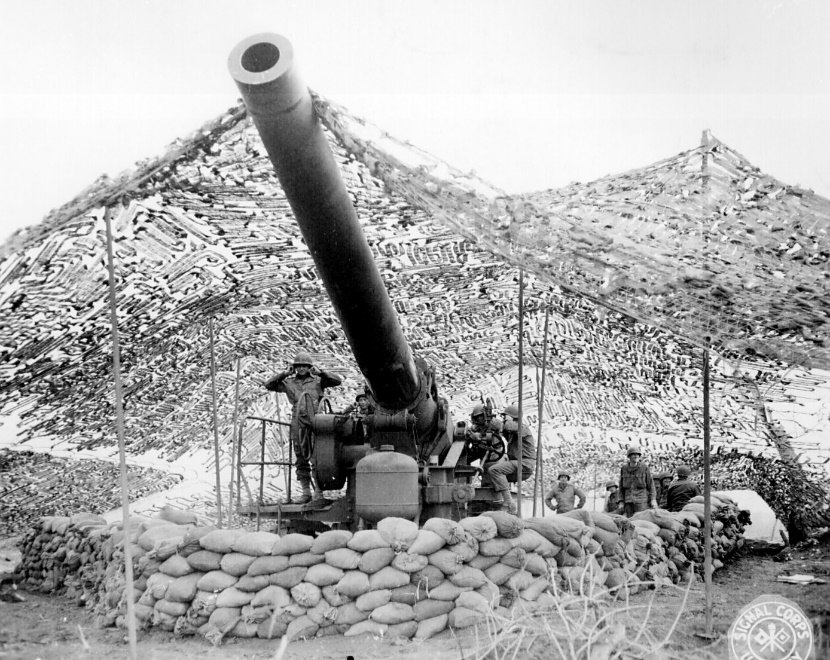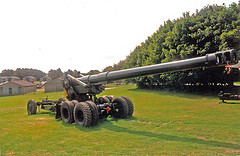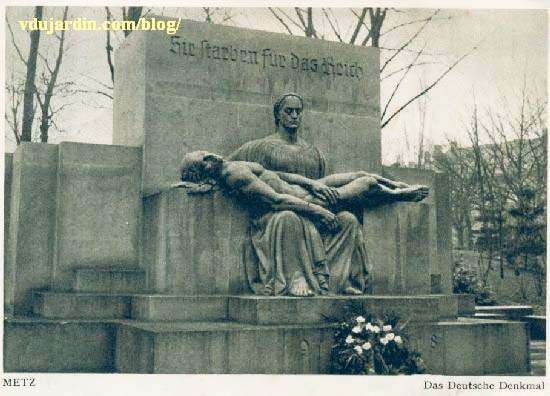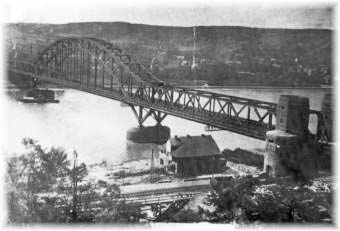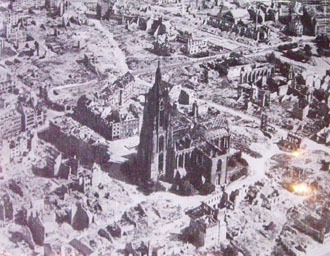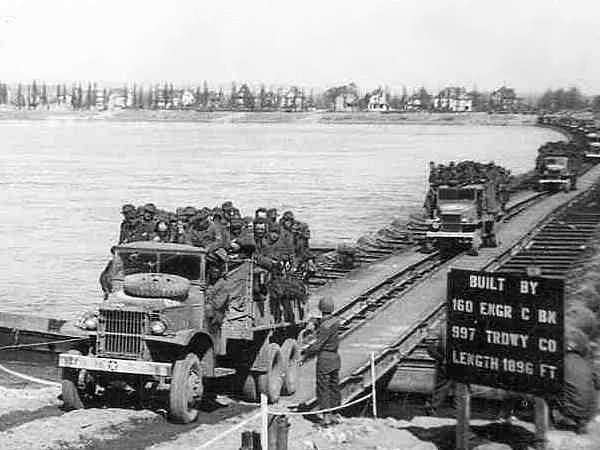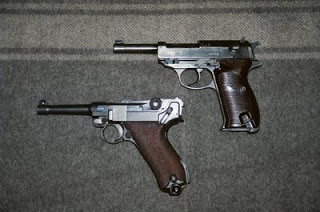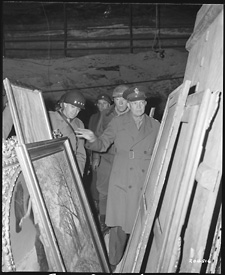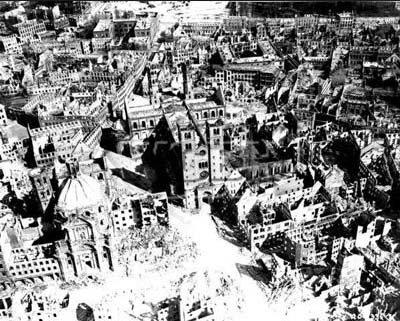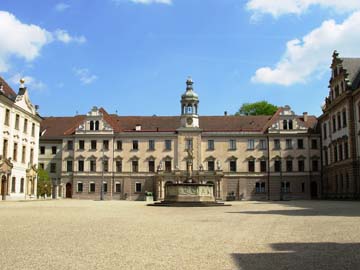CHAPTER ONE: Well, here we are! NOW what?
It was a bleak, cold day as our convoy rolled to a tiresome halt alongside a field that was to be our assembly area for a week. For want of a better name some poetic soul had called it RED HORSE! We all looked at it and shrugged with the cold and longed for those damp, drafty English barracks with their cast iron stoves. Resigned (or were we?), we piled out of the trucks and pitched pup tents in the soggy ground. Everybody tore across the road to grab up all the straw possible to keep from getting damp. Within an hour's time, the first sergeant struggled with his CP pyramidal, Nash brewed some steaming hot coffee while the rest of the kitchen crew lugged stoves from the truck, ripped open ration boxes, and gave out some “Ks” to a very hungry battery. Nightfall saw a big step ahead for organization. Even the latrine fly had its last peg driven.
For six days, equipment was spruced up, we reorganized, “de‐winterized” jeeps and trucks, huddled around fires, fought the frost in getting up in the morning or going to bed at night. In rolled more supplies and more supplies to perplex, harass, and grind the nerves of the inimitable “AY‐RON” FLETCHUM! Everybody, tho, breathed a sigh of relief when the arctics tumbled out of their boxes and the bed rolls uncrated and in no time the line for them stretched from the CP to the kitchen and snaked and see‐sawed almost to Headquarters Battery.
But life was not without its humor. We were homesick, very, very homesick and a little apprehensive of what lay ahead but still there remained time for fun. Who does not remember the “bon cidre” from Rouen or the nightly French lessons at the little Normandy farmhouse “down the road apiece”? True to form, Sgt. LAWRENCE (nicknamed the “Operator”) and his men established themselves nicely in a barn and lived well those six days. You could always depend on LAWRENCE to find the best − he's that way.
Some of us aren't going to forget Rouen, its trolley cars, and its cider. Nor the “going away party” given by MURPHY and BALDERSTON, Inc. for some battery officers. Nor the mystery of the FIRST SERGEANT sitting forlornly, so forlornly by his little stove the night he came back from Rouen.
Remember the CP tent? It was our “town hall” those days. All the “cracker barrel philosophers” − HAYES, BALDERSTON, MURPHY, “E.V.” Lt. Fredrickson, Lt. Bracht, and the BC not to forget our moderator, the distinguished E. T. DOUGHERTY, sat around the fire each night to talk of what was to come, to pine away for dear old Leek, jolly old Buxton, happy Hanley, and listen to BBC over the 543.
With the arrival of Christmas Eve, the thought of most everyone turned to home and to all that meant a great deal to them. Lots more went to church, either the quaint little sixteenth century not far from the encamped or to the large old Catholic Church (those of us who were there remember the cold stone floors; the queer little man in the Napoleonic costume; the strident, rasping, and very raucous old choristers; the kindly old curé, celebrant of the MASS) in the town of Tôtes. Praises ran high (as they always do) for Chaplain PETTIT and the wonderful Protestant service he conducted in a little old church gaily decorated (as best we could) and lighted by scores of little candles. Most of us who went to services returned just a bit more refreshed, a bit more self‐confident, a bit more determined to face whatever tasks lay ahead with complete faith, confidence, and subdued optimism. It was our first Christmas Eve away from America and it turned out to be an eve well spent.
Christmas day was our big day here. NASH served up a swell dinner with “all the trimmin's”. Sgt. BALDERSTON broke the world's record for eating pumpkin pie. No one yet has turned in an official count of the number of pieces he consumed.
All that day, the 543 broadcast the programs we loved this time of year from HOME − now far across the winter seas. We all thought a little, said little, but read old mail over and over again.
That last evening activity quieted down. A long, long drive lay ahead of us next day. The drivers came in, were briefed, given air attack precautions. Last minute preparations for an early morning move reached their climax.
[Top of Page]CHAPTER TWO: The Long, Tiresome Motor March (Phase I)
Bright and early the morning of the 26th tents disappeared; bed rolls, barracks, equipment, everything piled into the trucks. At twenty minutes to seven, the convoy coughed up clouds of smoke and rolled thru Tôtes in the early morning mists. Destination Visé, Belgium. Schedules called for hitting it that night.
All morning long the column rolled over the cold country side. By one in the afternoon, St. Quentin hove into view. Here the other batteries joined us. Plans called for a quick gassing up of trucks and a swift move onward to the destination. Somehow or other things didn't quite work out that way.
The battery was still there at seven in the evening. Eight o'clock came − no move. Nine o'clock came − rumors but still no move. About ten we started out. All guns manned, loaded (that is the guns), ready for anything. Both platoon sergeants had made final checks, put their men in the mounts, warned them all that Jerry might be around.
Doubled up with the cold, we rolled along in the clear moon light (that cursed moonlight) past Guise, past Hirson, towards La Capelle. A lone black shape like a giant bird flitted by then disappeared as the column continued on.Then, at precisely eleven forty, it HAPPENED! Over the column roared a JU‐88, black as the death it carried, circled, started in using see‐saw fashion from the rear, spitting orange flame, chattering leaden destruction. The battery snapped into action. Trucks dispersed. Guns spat back at the strafer. Trucks emptied in the twinkling of an eye as men piled out, headed for woods, ditches, hid behind buildings, or anything they could find. Our gun crews (God bless 'em) stayed at their posts and continued firing while Sgt. BALDERSTON hastily and ably organized his men and seemed to be everywhere at once.
Back a second time Jerry got a hot reception, even to the two rounds from HAMMERSMITH'S cab mount. Headquarters up ahead had casualties. Able came through without a scratch thanks to quick thinking and equally quick action.
Though shaken up a bit, we rolled on more alert now than ever. Jerry prowled plenty that night but we surely bagged one of Junkers bombers as it came in low over a hill only to be caught in a deadly cone of fire from every mount in the column. MURPHY, rumor hath it, was involuntarily saved that time. Reliable sources inform us that his beard was singed by an M‐51 (name of “barber” and section withheld) tracer that came just a little too close. Or COULD it have been an attempted assassination? Perhaps the real truth, the awful truth remains an unsolved mystery of the ETO campaign.
Our next objective, Rocroi, we never did hit. Somehow or other the column wound around and round and round in a nameless gloomy French town till exhaustion caught up with it and everyone just toppled over fitful sleep till early the next morning.
[Top of Page]CHAPTER THREE: The Long, Tiresome Motor March (Phase II)
(Or How We Slithered Through the Ardennes)
27th December 1944
Trucks rolled on, on, on, all day long over snow‐blanketed icy roads in the frozen Ardennes, past the chill, blue water of the La Meuse into the traffic jams of Dinant and Namur. It MADE Visé with barely a drop of gas left, pulled up by the schoolhouse. Men wearily, exhaustedly unloaded, trudged inside with equipment and bedrolls to bed down on chilly stone floors. Dirty? Tired? Could anyone have felt any worse? No one cared if he ever SAW a German. We had enough for a while − MORE THAN ENOUGH!
Yet we had to go on the next day. Few wanted to. But now the orders read Brand, Germany. So we did what the “Man” said and went on.Across the Dutch border, the first dragon's teeth of the Siegfried Line hove into sight. Then Aachen (Aix‐la‐Chapelle), Capital of the Holy Roman Empire in ages past, but now just bomb battered, rubble strewn Aachen with its handful of aimless civilians poking about ghastly ruins and scattered MPs directing traffic. Who will forget that first sight of a major city pounded to pieces, left with “not a stone upon a stone”?
Outside of Brand, ALMOST journey's end, the BATTERY COMMANDER AND Sgt. HESTER (minus Sheriff's badge) MET the column to lead the different sections into position at Oberforstbach, a little hamlet not too far from the Ninth Army front line.
CHAPTER FOUR: Cold Interlude in Ninth Army Area
28–31 December 1944
Guns dropped down, pits, shelters, ammunition storage holes were literally hacked out of the rock‐bound mud and wire lines stretched over frozen snow‐swept ground to each position. The first water trucks and ration vehicles skidded over slippery roads to the sections and countless other little administrative or tactical details were attended to by parties concerned as the first tactical position occupied by Able battery since the long forgotten days of the Army Ground Force Tests (at Camp Stewart) became more and more static, more consolidated.
Isolated bits of information as to the mission and assignment began to filter out to the gun crews in the snowy and shell packed fields, then became more compact, more detailed, more consolidated after the preliminaries of setting up were over.
The information received ran something like this:
We were assigned to the Ninth U.S. Army, commanded by Lt. General Simpson and were under the control of the Nineteenth Corps and the Ninth Tactical Air Command. Our specific mission turned out to be the Anti‐aircraft protection of certain vital areas of field artillery. The front line lay not too far away on the Rur River near Düren and on the enemy side of that, the G‐2 estimate said that there might be fourteen German Divisions. Our old friend, the 456th lay beyond our area.
Caution and vigilance were the order of the day. Messerschmitts, Focke‐Wulfs, Junkers, V‐1s were liable to come over in force as soon as the cloudy weather and good visibility made for better flying conditions. Warnings on the presence of enemy patrols and booby traps were disseminated to everyone. So everyone prepared to remain watchful and vigilant in this our first tactical position in the ETO.Our actual battery command post was in an old stone house while the sections lived outside, taking what they could find − houses, underground shelters, anything. It was cold, damned cold and rough as the word goes, but somehow we made it.
There existed a vast consensus of opinion to stay put, but the swashbuckling, hell bent for leather, George S. Patton, Jr. needed the outfit down his way.
MARCH ORDER: Five days after Able Battery hit Germany it was off again, this time for Third US Army area. Another cold, wearisome convoy loomed up in the minds of all the men. To top it all the prospect of spending New Year's Eve in the Ardennes, on a hellish, relentless, and grueling twenty‐two hour drive in the dead of winter, sickened us.
Anyone who disagrees that the convoy turned out to be anything but a rugged one, should consult a medico to see if he's all there. Jerry was around, he shadowed us outside of Charleville and bombed the town while people huddling in the shadows of shuttered buildings wished one another an ironically happy New Year.
Report Center Longuyon! What a godsend that railroad station was! Here we spent New Year's day. Certain ones among our crowd GRATED the nerves of a high‐strung FROG by taking free deep draughts of his wine and assorted liqueurs after occupying the ramshackle building he dubbed his “restaurant”. Amends had to be made. Who made them, we never did find out. Perhaps a few NCOs could enlighten us all. Maybe even a few officers.
At Longuyon the new mission was revealed. A vicious, destructive New Year's Day raid on one of the airfields at METZ showed that Jerry possessed sufficient air power to know our scores of American Thunderbolts on the ground. Then he had gone hell bent for devastation around the city itself. The bridges and MSRs definitely were threatened, for if old “Blood and Guts” was to keep endless supplies and reinforcements rolling toward the front in a final, all‐out effort to pinch off and completely smother the dangerous drive of Gerd Von Rundstedt, then these places had to be defended with ack‐ack at all costs. The lot fell to the indomitable 567th with Battery A holding down these vital points inside the fortress city of METZ! [Top of Page]CHAPTER FIVE: FESTUNG METZ − Or two solid weeks without a march order
Jan. 2, 1945
PILCHOWSKI can tell most of us how vicious was the cold on the last leg of the journey to Metz. The battery, frozen stiff, pulled into the Mosel Kaiserhof that sunny afternoon of January 2, 1945 and the men clambered out to set up positions. The guns and mounts were to be on the bridges and MSRs inside the ancient city.
Organization did not take long. Sgt. MURPHY and Lt. BRACHT maintained, for the first few days, exclusive and luxurious residence at 1315 Boulevard Georges Clemenceau (Interviews by appointment only.) well in the heart of the residential district. The rest of us settled down to a comfortable living in the caserne − a nice mess hall, movies a couple nights a week (at the 411th), almost complete freedom of the city, this was our lot.
Ingenuity turned out to be the order of the day for the gun sections. 7A had a warm little freight car just as homely as you please and 5 lived quite well in a house in the center of town. Double bunks were “de rigueur” with the result that almost every day, a few men of each section were out looking for floors, doors, sides, or stoves. As the days passed by, laundry service became available and a couple of francs would entitle a man to a darn good shower.
High spots of the sojourn in Metz was the flood of mail that came in from battalion one night. Men started receiving not one, not two, but ten, twenty, thirty letters apiece. This shot morale up about a thousand percent. Mighty lucky were we and happier yet to receive the long‐awaited news from home. The platoon sergeants sweated blood in distributing it, but the upshot in morale was certainly worth it.Actually, life in the glorious city of Metz lasted just two weeks. At length, movement came. A1 Patch clamored for us down Seventh Army way, so off we moved lock, stock, and barrel to a little town called Diemeringen in the province of Alsace‐Lorraine.
As the two and a half tons dragging their little forties and “mounts” behind them growled out of Metz, the battery said goodbye (for a while) to Lt. BRACHT and WOODALL. They had been left behind after a severe vehicle accident one winter afternoon. Every man hated to bid them farewell, especially SGT. MURPHY and the BC, Lt. PRICE, at this juncture joined the outfit to take over the second platoon. From the rumor department, it had been learned that his first official act was to make MURPHY his “exec” then demote him five minutes later. No harm came of that, however. It turned out to be SOP for weeks and weeks. For further information consult MURPHY!
[Top of Page]CHAPTER SIX: Bitche Haguenau Areas − Seventh U.S. Army
The sloppy little town of Diemeringen was our home for quite a while. Lots happened there. Had there been an opportunity to print and edit a “rag” (newspaper in police society), the editorial and reportorial staff would have slaved all night and day. Always there was news or at least something to talk about.
The field “Soldaten” of Able Battery settled down to make themselves happy as possible with all the comforts of home. A battery officer, or the “brass” from up above could stroll by almost any section and see a varied assortment of beds, stoves, furnaces, what not. Sides and floors were part of the “T/E” of nearly all tents. Improvement was noted from day to day as the sections toiled harder than ever. It finally developed into a race, a mad race to see what platoon could outdo the other as the battery seethed with the contagious, competitive spirit.
One night an event of major importance took place. The 101st Airborne Division, battered relics of Bastogne, came to our peaceful little town loaded down with the ponderous spoils of war, beaucoup booty such as P‐38s, Lugers, etc. The official designation of the CP became unofficially changed. Maps and formal battalion reports still showed it as the CP, but, in reality, the little “Gastwirtschaft zur Krone”, where the headquarters lived, became “THE TRADING POST”. Cajoling, wheedling, bartering went on from day to day. Nearly everyone in headquarters section possessed a pistol, a knife, or some other memento of the Nazis. Everyone except “Doc SYKES”. Or was he the one who squandered his life's savings for a Pistolen 38? Unofficial sources say he did. No one saw much of the “Doc” those days. He seemed always to be out on the prowl (for pistols, of course). A real “Trader Horn”.Shortly before the battery left Diemeringen, there came a sudden spring thaw. With its arrival, the sixth section, and a few others “took to sea”. The principal tragedy of this sudden thaw was Wilkerson's truck which suddenly “floundered” in deep water. To offset further disasters, FLINCHUM tried to requisition kayaks and rubber boots from the S‐4 section of battalion. He had little luck.
COLONEL FOSTER came to the command post a certain memorable SUNDAY MORNING, grabbed the BC, hustled him over to the operations map, whispered information of strictest confidence into his ear. A huddled conference ensued. The Colonel departed as suddenly as he had come.
MARCH ORDER? ALL SECTIONS, crackled over the wires. Pulling out of the mud, muck, and mire of Diemeringen, Able abandoned its mission of Class III dumps to work awhile with the field artillery around Schmittviller, Bining, Rahling, Petit‐Réderching. Men soon got used to the incessant crack of the 155mm's and the roar of the bigger babies, those Petit‐Réderching 240 mm howitzers. Yes, even the mud, the slithering, sloppy sticky mud we had − had to live in it, had to like it. Rain, mud, sleet, a little snow, lots of damp, cold weather turned out to be our miserable lot.Sgt. ANDERSON and his men had the questionable distinction of being closest to the front lines. Their positions were within 2000 yards of No Man's land, not far from German‐held Bitche. Their special mission was to furnish protections for a well concealed 240 mm howitzer whose sole job was to liquidate a notorious “Alsace Alice”. Did Cpl. BORDEN ever tell anyone about the barbed wire the Patchmen strung out behind the sixth section? Or the little show, too close for comfort, that Jerry put on of a night?
Comfort, in these parts, was NOT the order of the day. The CPs were fair (1st Platoon didn't have too bad a setup in Rahling), but most every gun section fought mud, rain, cold, and moved around like pawns on a chess board while the “geniuses” from group revised defense plans.
Yet Restless Able was fated to move on. Out of the Bitche quagmire, it wallowed, then rumbled down through the lovely Vosges on up to the Haguenau sector. Missions there were varied. The inevitable MSRs around Wilwisheim and Schwindratzheim then a little more duty with artillery up Wittersheim way.
The town of Haguenau, half held by the Yanks, half by the Herrenvolk, became the happy hunting ground for section furnishings. Cpl. DOUGHERTY noticed a marked increase in the wooden boxes sent home. Expeditions (or shall we call them “foraging parties”?) were frequent.
There were times when the Heinies would interpose vigorous objections, as was the case with John ROBERTSON! This man holds the world's record for march ordering a jeep. There WAS SOME BIG NOISE and ROBERTSON stopped to inquire from a crouching doughfoot. The “dough” blithely informed OUR JOHN to get under cover to avoid enemy shelling. OUR JOHN tarried for a moment. But, ONLY FOR A MOMENT. As if to add emphasis to the doughfoot's warning, a Jerry shell took away a building within plain sight of John. His stark amazement turned to quick action as he buzzed out of Haguenau at 300 per. To this day, Sgt. MURPHY still wonders at what airfield in the pampas of Texas he received fighter pilot training.During the stay in the Haguenau area, Lt. SMITH became Capt. SMITH. Everyone welcomed the promotion for he certainly deserved those “railroad tracks”. But a lot of us couldn't get used to calling him Captain, especially Sgt. HAYES, for at least a couple of weeks.
After Rheinhardtsmuster, our last CP in the foothills of the Vosges, our stay with the Seventh Army drew to a close. Back we came to Metz, good old Metz, for a week's rest.
[Top of Page]CHAPTER SEVEN: The Calm Before the Storm
The old town of Metz didn't look the same as it did during the winter. Magic had changed it completely. People walked along, neat, clean boulevards, shaded lanes, picturesque streets. The French “pubs” with their “watered beer” threw open the doors for the first time. Theatres and movies came to life again. Shops displayed limited wares. Well‐dressed civilians tramped the busy streets all day long.
Parks felt the fresh breath of spring and a new life different from the old as trees budded and blossomed and the little streams and rivulets flowed and trickled clear and blue in beautiful spring sunshine.
Great monuments and equestrian statues of the fortress city could be seen again and a few of us realized the former glories of the republic of France as we gazed in wonderment at them. The great war memorial showing the classic figure of a veiled woman holding the body of a fallen warrior no longer bore the hated [German] inscription: “SIE STARBEN FÜR DAS REICH” (They died for the Empire). It too was changed, looked more imposing, more majestic than ever.Among the more heavily patronized shops were the pipe stores. Sgt. WARD, a frequent visitor, added much to his collection. Lots of men who hadn't taken the pipe before, started to sport the latest French briars because it was the thing to do.
In the city's confines, the beautiful and picturesque scenes were intermingled with that which was grim and grisly. Seventh Section had ringside seats at their position for performances of the French firing squads. In the misty moments before the cold dawn of many mornings, the French guards would march spies and collaborators past the section and on up to the execution ground to administer the supreme penalty for crimes against the people of France. Lts. MENAY and PRICE and Cpl. PECK arose at 0430 one cold morning to watch the proceedings. Of course, nothing ever happened, though SPAULDING to this day swears that an execution was scheduled to take place that morning.
Well, the inevitable march order hit us after a week. The “gypsy caravan” rolled to the little, medieval town of Sierck (Sometimes known as Sierck‐les Bains.) on the Moselle at a point where France, Germany, and Luxembourg come together.
Sierck, we won't forget so easily. The battery lost two good men − BRIMMER and PEDROZA who drowned in the treacherous Moselle.
Their bodies were never recovered by our men though Sgt. HAYES and Sgt. BALDERSTON and all who could lend a hand grappled fruitlessly for hours and days. Any enjoyment we might have gotten out of this position was hopelessly colored by the terrible tragedy. When the battery moved on to Wincheringen‐Wormeldange around Luxembourg, every man was glad to say goodbye to Sierck.
The month was March, the middle of March, and the entire American and British front from Goch and Aachen to Colmar, erupted like a long extinct volcano. Armies moved slowly, then gained momentum, tolling up the enemy clear to the Rhine River. Remagen, Saarburg, the Moselle Triangle, Düren, the Ludendorff Bridge, the Patton‐Patch gigantic pincers that swallowed up the Saar − these we read about, heard about while sweating out the defense of a long freight car in Wincheringen. Action, action, action, when oh when would it come? Big things went on up ahead, here we sat among the green, fertile fields of Luxembourg, waiting, waiting, waiting, ripe for a fight, getting none, cursing, fuming, growing more and more restless by the hour. [Top of Page]CHAPTER EIGHT: The Storm
THEN CAME MAINZ! In the twinkling of an eye, the battery whisked up to its assembly area at Sprendlingen of a moonlight night, pulled into a field to wait for something big. Nobody knew what it was. The BC and his platoon leaders had not yet come back from “recce party”.
But something big was bound to happen. All along the road that night armor rolled, clattered, creaked, squeaked, and roared on up, on up toward that place called “the Front”, on up to the Rhine, greatest of all barriers to the Reich.
The Captains came back. All chiefs of sections and the Platoon sergeants grouped around to receive the mission.
Briefing was short, to the point. Mission: To protect the Rhine crossing of the 80th Infantry Division, scheduled to start at 11 pm. A few last minute instructions, a word or two of advice, hasty salutes, coughing, sputtering of vehicles, nerves tensing, tightening up − off we rolled.
Moonlight shone ominously over the silent ruins of Mainz as we sneaked into position.Where to put the CP? THAT was the question. Nothing to do but wait till the morning, so that headquarters section pulled into a little wood to bed down.
Down by the river bank the artillery, our artillery, started cracking, booming, thumping, sounding out its symphony of death. “THE BIG HOW”, we thought! Heinie artillery replied, replied opening up from the blackness across the river. 88mm shells started whining dangerously close. DOC SYKES hastily burrowed into the ground. Every man flattened out, wondering what next. Then a tree burst, falling sticks. Another one, another one. One, two, three − four?
Time to move, but fast! HESTER SAW THE LAST 88 shell hit near the edge of our wood. There followed a hasty conference with the captain. Then, the curt order: “Let's go!”
Trucks, trailers, everything sped out of the woods back on to the road. But, just as suddenly as it began, the shelling stopped.
The following morning the command post set up in the Luftschutzraum of an abandoned Luftwaffe headquarters. The SO they never made it over that night. We were destined to go through more hell the next two days and nights than a lot of us care to remember. Word came down from higher headquarters that the big crossing was to be made the following night.
Another tense briefing of the noncoms. Ambulance ready, aid station set up. The chaplain came down. No one said much but did a lot of thinking. Zero hour was set at one am! the morning of the 25th of March.
Hours ticked away. Nine o'clock − all silent. Ten − one of two guns let go. Eleven − ominous, nerve‐wracking silence.
All sections standby. “CP to all sections. Anything going on down there?”
“One − nothing. 1A, all's well. 2, 2A, 3, 3A, 4, 4A, 5, 5A, 6, 6A, all the way down the line: OK, sir. Ready. Nothing happening yet.”
Twelve midnight − nothing. Twelve‐thirty. Communications check. Nothing. Zero minus three minutes, zero minus two minutes, zero minus one minute. ONE O'CLOCK!!!!!!
A crescendo of concentrated hell let loose from the darkness as the artillery boomed, pounded, cracked, in a wild, vengeful roar, sending shells of all calibers zooming toward the enemy across the Rhine. From the third section the enemy lay a scant three hundred yards on a midstream island.
Jerry started to register, cutting loose with 88mm's and those damned mortars. 3A's mount torn to shreds by a direct hit − NAVE, RUNK, the rest of the section barely made it to the foxholes. NAVE himself received scalp wounds from the flying bite of shrapnel and a Darkie soldier from Engineers was horribly cut up. The hero of that hellish night, RUNK, braved shellfire showing complete disregard for his own life to move the two wounded men to a place of safety.5A had a shell tear through their tent splatter against the side of the truck, pockmarking it with jagged holes.
All night long, the men out there too close for comfort to the enemy were pinned down, sweating out a ceaseless, nerve shattering barrage and counter barrage. Mysterious things happened. Light, signal lights shone in windows. Flashlights, signals came from the blackness of buildings. Always the enemy fire very accurate, very close. PETTY can tell of it. RUNK knows what it was like. So does TAYLOR. So did POINTDEXTER! Not many a man could stand up under what he had to take.
Shells, shells, more shells. Shrapnel bouncing outside the CP next morning. More hell the following night. Casualties!
Who will forget those two nights in MAINZ. Battle? WE had enough of it!
Thereafter, certain people specialized in shooting out window lights. Lt. PRICE, if you look at his carbine closely enough, has notches cut in it for everyone he put out.
The enemy rolled, back, way back. Over we rolled a day or so later across the Rhine over the longest tactical bridge in the world into Kastel on the other side. The worst was over.
[Top of Page]CHAPTER NINE: The Aftermath
Life settled down to normal in Kastel. Sections assembled their private arsenals of shotguns, Lugers, P‐38s, swords, everything. Some Sherlock Holmes with a nose for alcohol found cognac, a warehouse full of it. The cognac did not stay in the warehouse to age any more after that. Rather, it was DISSEMINATED or generously circulated.Creative activity surged anew. NASH and SCHLIEP located two German engineer trailers. With the aid of a welding torch, plenty of lumber and nails, a super‐duper travelling kitchen, and an ordnance shop on wheels came into being. The kitchen and maintenance crews stopped work only long enough to eat chow.
We regretted leaving Kastel. But “the man said so”. On a fine Sunday morning, the battery march ordered.
Came Y‐87 at Nidda our first airstrip. Remember the endless stream of the Skytrains day in, day out and the prisoners from Bad Orb. Of course, one mustn't forget the Air Corps boys with their “go to hell jeep”. Nor the “BG” who came to dinner.There is a story going around that the first sergeant tried to elect himself Bürgermeister of the town of Nidda. We never DID learn the result of the election. Can anyone enlighten us?
After Nidda, there was a very long move over broad, white stretches of the autobahn past Eisenach on up to R&I at Wenigenlupnitz. FLINCHUM took off for the Riviera, lucky man, the rest of us pulled duty and in our spare time prowled around the charred hulks of Focke‐Wulfs and Messerschmitts on the airstrip.
R&I was destined to be short lived. The caravan moved on to Merkers farther south. The burning question − how to set up positions to defend a salt mine, one thousand feet below the earth.As it turned out, the mine was a treasure trove of Nazi gold bullion and looted paintings. The superman had buried them far below the surface of the earth. Some of us went down there. T. L. (TOUGH LUCK) SMITH still talks about the jeep ride thru miles of subterranean caverns.
Another hoard was located at the mine. We speak of the sheepskins which decorated the seats of jeeps, trucks, and weapon carriers for many weeks afterward. Capt. Smith had in his possession a priceless photograph of our battery “surgeon”, Dr. TRENT, all decked out in a white sheepskin, top hat, and cane, and chewing on a choice black “El Ropo”. Certain ones among us in the battery would like to place that picture on exhibition in the near future.
[Top of Page]CHAPTER TEN: Würzburg to Regensburg and VE Day. The Grand Finale.
The most poignant memory of Würzburg is its rubble and the gaunt skeleton of the buildings. Our defended area was the R‐24 airstrip, where we planked down around one million gallons of gasoline, had a little action, got lots of fun out of watching the “Jigaboos” vanish into thin air every time a Jerry prowler came over. A fine command post we had though at times the first sergeant wondered if the C‐47s were able to clear it.Roth was next stop. To reach the gas dump there we had to travel through the scarred shell of Nuremberg one of the cradles of the Nazi party. From all appearances the invading Yanks lost no time in levelling the last stronghold of Nazism. We began to make comparisons with Aachen.
On the move again after but a few days at Roth, we headed for Bavaria, crossed the Danube at Neumarkt, then sped on to Regensburg to pull palace guard duty at George Patton's headquarters.Came the 8th of May 1945. The enemy, a cornered rat, laid down his arms in surrender. Thoroughly beaten the Wehrmacht had “called it off” for good.
VE day came to Regensburg. Celebration was spontaneous with lots of wild shooting by some outfits and Patton fretted and fumed in anger. Tension was released. The ETO war was over at last. “ALLES WAR KAPUT”.
[Top of Page]CHAPTER ELEVEN: EPILOGUE
We rest now at Pfatter, not far from Regensburg. There are no more bed check “Charlies”, no more lonely night vigils by silent guns, no more pits, no more Sunday march orders to plague us. We are “administrative” now.
It is now possible to write, to speak more freely. As we look back everything blends into one picture. The experience was good, all of us saw a lot, did a lot. Times were good, times were bad, times turned out very, very smooth. In looking over the seven months it can be said that:
“The Job done well. We came out on top, almost, almost on top. As for the future, let it take care of itself. It generally does.
It had been a long, long way from the pebbled beach at Le Havre. We made it, made well. That, with us, is not unusual!”
